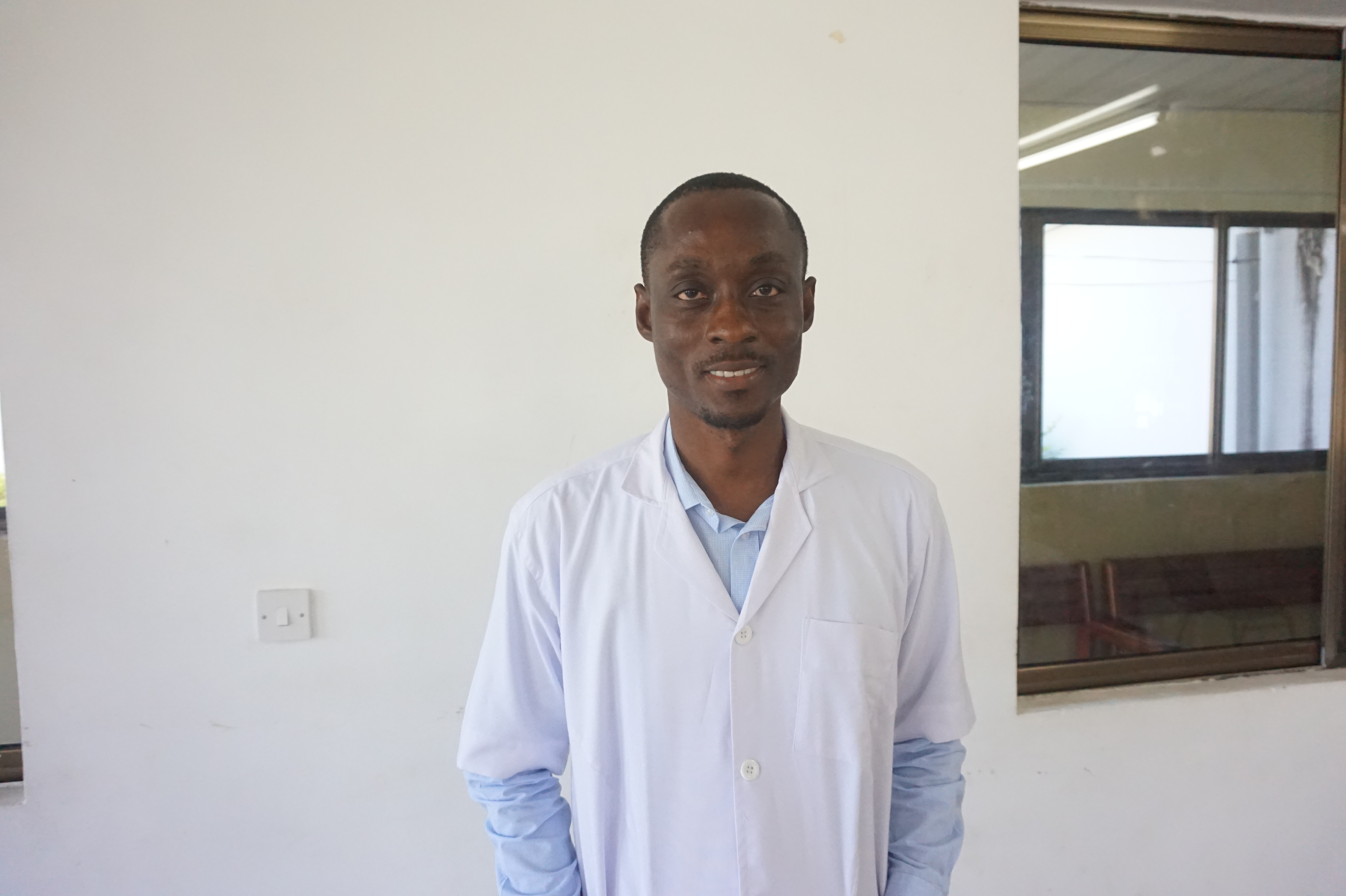Antibiotic Awareness: Ensuring Pharmaceutical Care in Ghana
11 November 2019

During a recent visit to Ghana we met Israel, a specialist pharmacist at Keta Municipal Hospital who is involved in the CwPAMS project, in partnership with Healthcare Improvement Scotland, to strengthen the capacity of the health workforce to tackle the growing challenge of Antimicrobial Resistance (AMR).
My name is Israel Sefah and I am a specialist pharmacist at the Keta Municipal Hospital. My work involves ensuring pharmaceutical care in the hospital. I have worked here for nine years. I wanted to study medicine when I finished my secondary education and my father advised me that it was good to study pharmacy, and now here I am!
Mine is the only available hospital in this catchment area, so we are very busy. On our busiest days we can see between 400-600 patients and on less busy days, between 200-300. Certain days are busier, for instance on a Wednesday, we have a diabetic clinic where we see around 100 patients. We also have an eye clinic, a mental health clinic, and an antenatal clinic that can see around 100 patients in a day. Then there’s the general OPD, where up to 300 patients a day are treated for different conditions.
The biggest barriers patients face are financial ones. National health insurance does not cover everything so patients might have to pay extra for a lab test, or for medicine. It is not very expensive but for a poor person, even 1 cedi is expensive. Transportation is another barrier; getting to hospital is difficult for patients who live far away. Cultural barriers also play a part – there is a lot of herbal medicine here and people’s faith and beliefs hinder them from coming to hospital for treatment. Some arrive in a very bad state, having tried other things first such going to a prayer camp. At the pharmacy, we try to educate people on the importance of coming to the hospital, but this largely happens on a one to one basis, so the message doesn’t reach everyone. We have a very strong public health unit made up of nurses who visit homes, markets, schools and other public places to educate people. Despite the barriers, there have been gains throughout the years. In the past, babies were delivered at home by traditional birth attendants and there was a belief that a caesarean section made you a bad woman, but now most mothers choose to give birth in hospital where there are qualified midwives and doctors.
The pharmacy is made up of around fourteen people, but it’s a big hospital and I’m the only one overseeing pharmacy activity across seven different clinics (including the diabetic, mental health, tuberculosis, and HIV clinics). The hospital does not have a pharmacy technician, so ensuring prudent use of medicine, one of the main roles of pharmacists, is challenging. If I attend a meeting, it means I’m not at the pharmacy. Those assisting are not technically trained, and therefore can’t judge whether a prescription is appropriate. It’s a worrying situation.
One of the problems in Ghana is that the development of healthcare isn’t even – we have a lot of nurses and doctors, but fewer pharmacists or biomedical engineers, so doctors and nurses are missing good pharmacists who can contribute to drug management and quality pharmaceutical care.
In general, we have most of the basic equipment and facilities for our level of primary care delivery, but in some wards, like the maternity ward or the obstetrics and gynaecology ward, there are not enough beds and sometimes women have to sleep on the floor. When equipment breaks down, the rate of replacement is slow, and we are sometimes without it for long periods of time, meaning that basic lab tests are not carried out. As everything is provided by central government and the hospital lacks sufficient funds to buy some of the very expensive equipment, the rate of replacement is a problem and I worry about how to ensure quality care management.
We have seen a couple of cases where patients are becoming resistant to antibiotics and we are getting to a point where most of our antibiotics won’t work. I am hoping that the rate of resistance will be reduced through the antimicrobial stewardship project. A dedicated team will collect data which we will use both to increase our awareness of antimicrobial usage and to inform decision making regarding the appropriate use of antibiotics across the hospital.
It is difficult to effect change when it is championed by just one person and in the past some staff have been resistant to change. However, as this is a team project comprising colleagues from different departments – the lab, the pharmacy, a doctor, a nurse – it should be easier to communicate with other colleagues and to generate consensus so that change is accepted by the whole team.
I find it fulfilling to contribute to quality of care and management and enjoy overcoming challenges, formulating solutions and seeing an improvement in patient outcomes. My hope for the future is that every hospital will have all of these teams working together to deliver quality care, not just on the pharmacy side, but across the hospital, to every patient.
We have seen a couple of cases where patients are becoming resistant to antibiotics and we are getting to a point where most of our antibiotics won’t work.
Israel Sefah - Specialist Pharmacist, Keta Municipal Hospital



0 Comments
Leave a comment
Your email address will not be published.